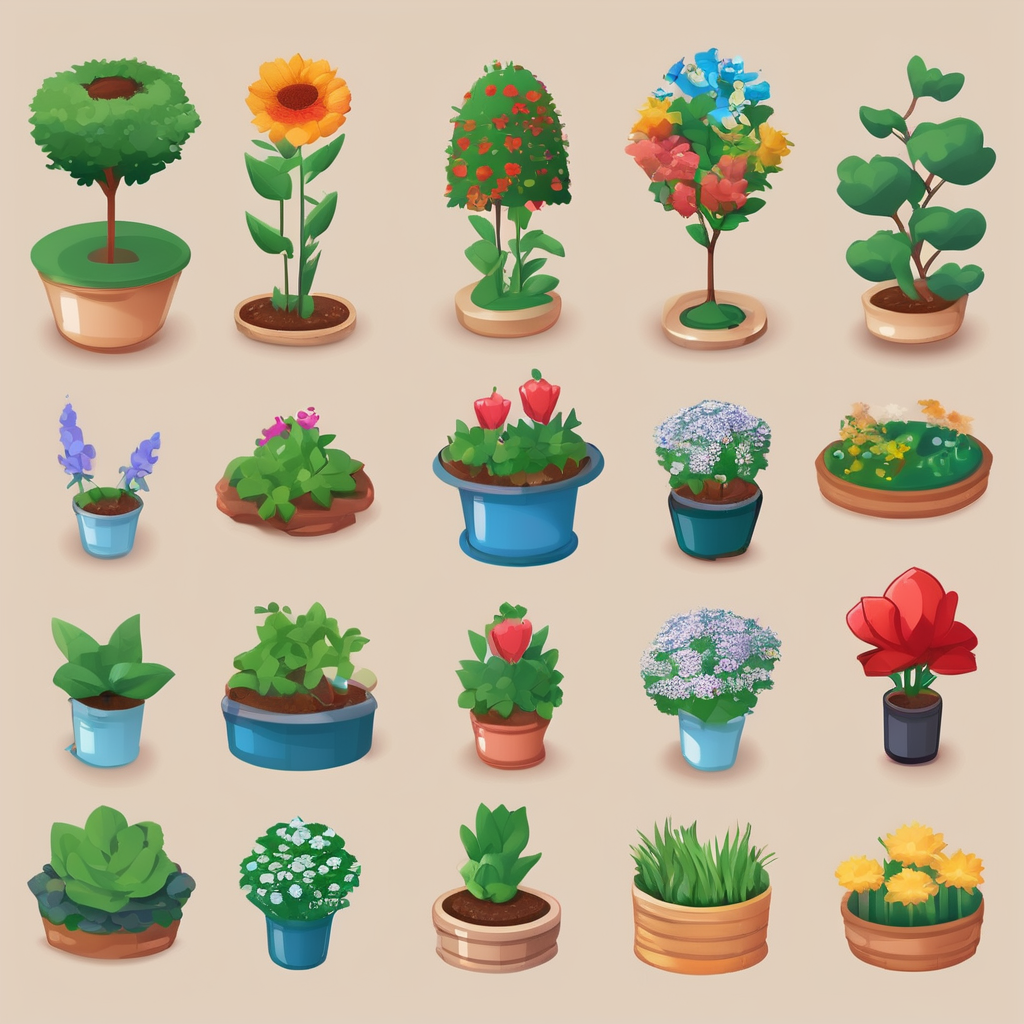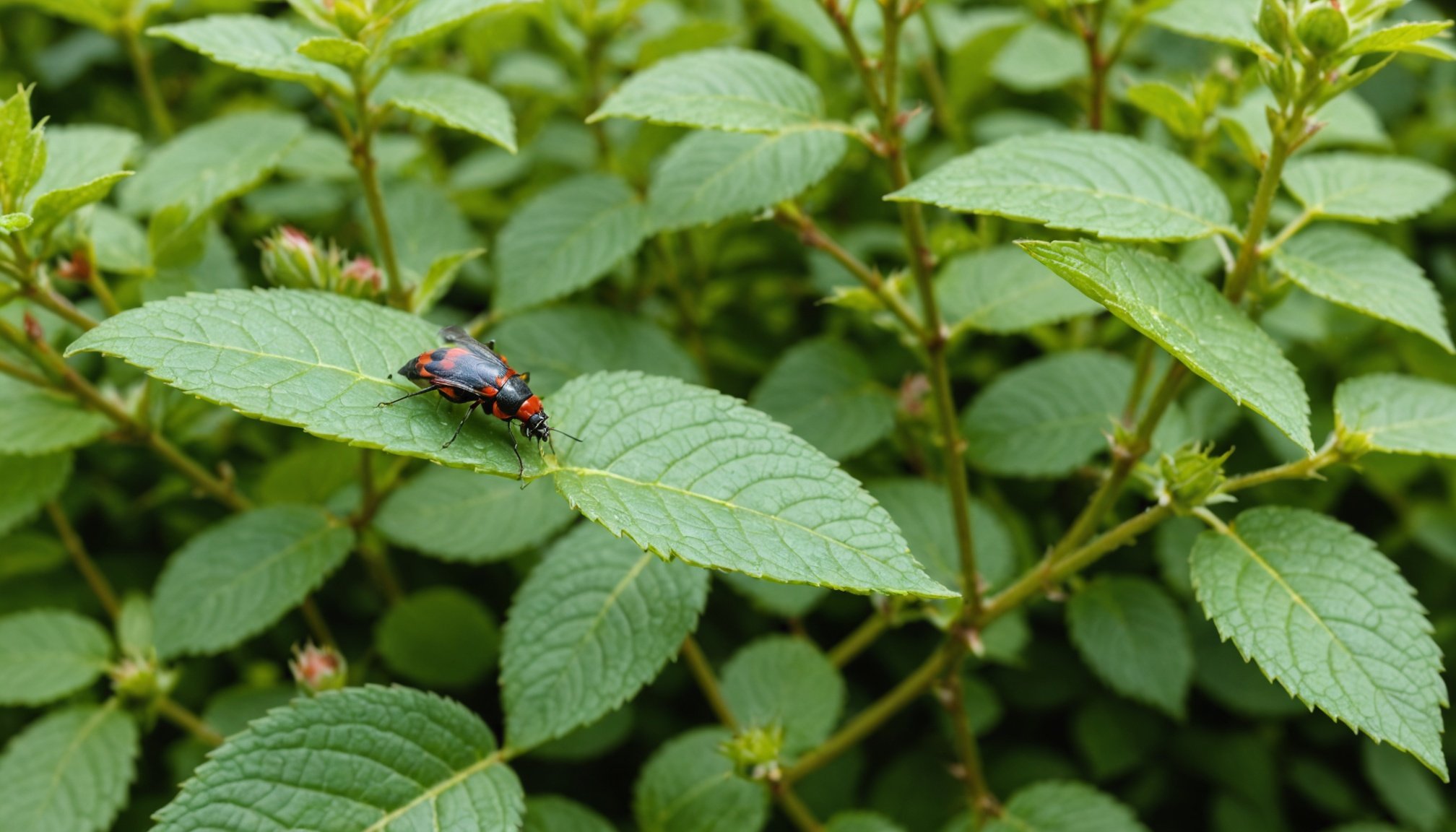Aphids can wreak havoc on your rose garden, but you don't need harsh chemicals to combat these pests. Exploring natural strategies not only protects your beautiful blooms but also supports a balanced ecosystem. From introducing beneficial insects to leveraging companion planting, discover eco-friendly methods tailored for UK gardeners. Reduce pest populations effectively while nurturing the health of your roses. Unlock the secrets to thriving blooms with these sustainable solutions.
Understanding Aphids and Their Impact on Rose Gardens
Aphids are small, sap-sucking insects that pose a significant threat to rose gardens. Their life cycle is rapid, with females capable of reproducing without mating, leading to swift population growth. This makes them a persistent challenge in pest management. Typically, aphids are pear-shaped and may be green, black, or even pink, depending on the species.
A découvrir également : Transform your garden: discover ourplatform's expertise
Common Types of Aphids Affecting UK Roses
In the UK, several aphid species are known to infest roses. The Rose Aphid (Macrosiphum rosae) is particularly prevalent, identifiable by its green or pink hue. Another common species is the Greenfly (Aphis pomi), which can cause significant damage if not controlled. These pests feed on the sap of rose plants, weakening them over time.
The Impact of Aphid Infestations on Rose Health
Aphid infestations can severely impact the health of rose gardens. As they feed, aphids excrete a sticky substance known as honeydew, which encourages the growth of sooty mould. This can block sunlight and reduce photosynthesis, leading to stunted growth. Additionally, aphids can transmit plant viruses, further compromising rose health. Effective pest management strategies are crucial to maintaining vibrant and healthy rose gardens.
Sujet a lire : Selecting the Perfect Potting Mix for Growing Indoor Orchids in the UK: Your Ultimate Guide
Importance of Natural Pest Control
Embracing Natural Pest Control in rose gardens offers numerous benefits over conventional chemical pesticides. Not only does this approach protect the environment, but it also supports the principles of Organic Gardening by avoiding harmful substances. Natural methods, such as introducing beneficial insects like ladybirds, can effectively manage aphid populations without disrupting the garden's ecosystem.
Long-term Advantages for Garden Health and Biodiversity
Utilising Sustainable Practices in pest management promotes a healthier garden environment. Natural pest control methods contribute to improved soil health and encourage a diverse range of organisms to thrive. This biodiversity is crucial as it helps maintain a balanced ecosystem, reducing the likelihood of severe pest outbreaks.
Furthermore, these practices align seamlessly with organic gardening principles, which focus on nurturing the garden's natural resilience. By fostering a robust and diverse ecosystem, gardeners can enjoy long-term benefits such as stronger plants and reduced dependency on external inputs.
Alignment with Organic Gardening Principles
Natural pest control is a cornerstone of organic gardening, emphasising harmony with nature. By opting for sustainable methods, gardeners can create a self-sustaining environment that supports both plant and insect life. This approach not only enhances the garden's aesthetic appeal but also ensures its vitality for years to come.
Identifying Aphids in Your Rose Garden
Recognising aphid presence in your rose garden is crucial for timely intervention. Look for signs such as curled leaves, yellowing foliage, or a sticky substance known as honeydew. These symptoms indicate aphid activity, as they suck sap from plants, weakening them.
Monitoring Aphid Populations Effectively
Regular monitoring is essential to manage aphid infestations. Inspect rose bushes weekly, focusing on new growth and the underside of leaves where aphids often congregate. Use a magnifying glass for a closer look, as these pests can be small and hard to spot.
Tools and Methods for Aphid Identification
Several tools and methods can aid in aphid identification. Sticky traps are useful for capturing and assessing aphid populations. Additionally, digital apps can help identify species by comparing photos to a database. Keep a garden journal to track changes and patterns in aphid activity.
By staying vigilant and using these techniques, gardeners can maintain healthy rose gardens. Early detection allows for more effective pest management, reducing the impact of aphids on plant health.
Companion Planting Strategies
Companion planting is a powerful tool in the gardener's arsenal, particularly when aiming to deter aphids. By strategically incorporating pest repellent plants into your garden design, you can naturally manage aphid populations without resorting to chemicals.
Recommended Companion Plants
Certain plants are known for their ability to repel aphids. Marigolds, for instance, emit a scent that aphids find unappealing. Similarly, garlic and onions can serve as effective deterrents. These plants not only protect your roses but also enhance the garden's overall health.
Arranging Plants for Optimal Pest Control
To maximise the benefits of companion planting, consider the layout of your garden. Surrounding your rose bushes with pest repellent plants creates a natural barrier. Planting in clusters can also amplify the repellent effect, making it harder for aphids to reach your roses.
Effective Companion Plants for UK Gardens
For UK gardens, lavender and chives are excellent choices. Lavender's strong aroma confuses aphids, while chives release sulfur compounds that deter these pests. Integrating these plants into your garden design not only aids in pest control but also adds aesthetic and aromatic value.
Attracting Beneficial Insects
Creating a haven for beneficial insects is a vital strategy in maintaining a thriving rose garden. These natural predators play a crucial role in controlling aphid populations, thus promoting biodiversity.
Overview of Beneficial Insects
Several insects are known for their ability to prey on aphids. Ladybugs, for instance, are voracious eaters of these pests, with a single ladybug capable of consuming up to 50 aphids a day. Lacewings and hoverflies are also effective, with their larvae feeding on aphids and other soft-bodied insects.
Creating a Habitat for Natural Predators
To attract these beneficial insects, it's essential to create a welcoming habitat. Planting a variety of flowering plants can provide nectar and pollen, essential food sources for adult insects. Consider including plants like dill, fennel, and yarrow, which are particularly attractive to ladybugs and lacewings.
Specific Strategies to Attract Ladybugs, Lacewings, and Hoverflies
- Ladybugs: Encourage their presence by avoiding chemical pesticides and providing water sources.
- Lacewings: Planting cosmos and coriander can attract these insects.
- Hoverflies: Grow plants like alyssum and marigolds to draw them into your garden.
By fostering an environment rich in biodiversity, gardeners can naturally manage aphid populations and enhance the health of their rose gardens.
Homemade Aphid Sprays and Remedies
Crafting homemade sprays offers an eco-friendly solution to manage aphid infestations. These natural remedies are not only effective but also safe for your garden's ecosystem.
Recipes for Effective Homemade Aphid Sprays
A popular DIY solution is a simple soap spray. Combine two tablespoons of liquid soap with a litre of water. This mixture works by suffocating aphids on contact. Another effective recipe includes garlic and chilli. Blend a bulb of garlic and a teaspoon of chilli powder with water, strain, and spray on affected plants.
Application Techniques for Optimal Results
For best results, apply homemade sprays during the early morning or late afternoon. This timing prevents sunburn on leaves. Ensure thorough coverage, especially on the undersides of leaves where aphids hide. Reapply every few days until aphids are under control.
Safety Considerations When Using Natural Sprays
While natural remedies are generally safe, it's important to test sprays on a small area first to check for plant sensitivity. Avoid overuse, as even natural ingredients can harm beneficial insects if applied excessively. Always wear gloves and protective eyewear when preparing and applying sprays to ensure personal safety.
Preventative Measures to Avoid Aphid Infestations
Implementing preventative measures is key to effective aphid control in rose gardens. By focusing on garden management, you can reduce the likelihood of infestations and maintain vibrant plants.
Best Practices for Maintaining Healthy Rose Plants
To ensure your roses remain robust, regular pruning is essential. This not only encourages new growth but also improves air circulation, which can deter aphids. Additionally, removing debris and fallen leaves helps prevent pests from settling in your garden.
Seasonal Tips for Preventing Infestations
Adapting your garden management practices to the seasons can further protect your roses. In spring, inspect plants frequently as aphids become more active. During summer, water early in the morning to avoid creating a humid environment that favours aphid development.
Importance of Soil Health and Plant Resilience
Healthy soil is the foundation of a resilient garden. By enriching your soil with organic matter, you enhance its structure and nutrient content, supporting strong plant growth. A well-nourished rose plant is less susceptible to aphid attacks, as it can better withstand stress and recover from damage. Regularly testing soil pH levels and adjusting as needed ensures optimal conditions for your roses.
Monitoring and Managing Aphid Populations
Effectively managing aphid populations in rose gardens requires diligent population monitoring and timely intervention. Regular checks are essential to understand the extent of infestations and to decide when to deploy control strategies. Begin by inspecting plants weekly, focusing on new growth and leaf undersides. This practice helps in early detection, allowing for prompt action.
Techniques for Ongoing Monitoring
To maintain a close watch on aphid numbers, employ sticky traps and magnifying glasses. These tools assist in tracking population changes and identifying species. Consistent monitoring is a cornerstone of Integrated Pest Management (IPM), ensuring that interventions are both necessary and effective.
Intervening with Natural Control Methods
When aphid populations reach a threshold that threatens plant health, it's time to implement control strategies. Natural methods, such as introducing beneficial insects or using homemade sprays, can be effective. These approaches align with IPM principles, focusing on sustainable and environmentally friendly solutions.
Integrated Pest Management Approaches
Integrated Pest Management combines monitoring, prevention, and control to manage aphid populations efficiently. By integrating various tactics, including cultural, biological, and mechanical methods, gardeners can maintain healthy rose gardens while minimising chemical use. This holistic approach not only controls pests but also supports overall garden health.
Case Studies of Successful Aphid Management
Exploring real-life examples of gardeners who have successfully managed aphid infestations can offer valuable insights. In the UK, several gardeners have employed innovative strategies to protect their rose gardens from these persistent pests.
One notable case involved a community garden in Surrey, where gardeners collaborated to introduce beneficial insects such as ladybugs and lacewings. This collective effort significantly reduced aphid populations, showcasing the power of community gardening in pest management. By sharing resources and knowledge, they created a sustainable ecosystem that naturally controlled pests.
Another example comes from a private gardener in Kent, who successfully utilised companion planting. By integrating marigolds and lavender around rose bushes, they created a natural barrier that deterred aphids. This approach not only protected the roses but also enhanced the garden's biodiversity.
These successful strategies highlight the importance of combining different methods for effective aphid control. Lessons learned include the value of regular monitoring, the benefits of natural predators, and the impact of strategic planting. By adopting these practices, gardeners can create robust environments that withstand aphid challenges while promoting overall garden health.
Resources and Further Reading
For enthusiasts keen on enhancing their knowledge of organic gardening and aphid management, several gardening resources stand out. Books like "The Organic Gardener's Handbook" provide in-depth insights into sustainable practices, while "Roses Love Garlic" explores the benefits of companion planting.
Beyond books, numerous educational materials are available online. Websites such as the Royal Horticultural Society offer comprehensive guides on rose care and pest control. Additionally, platforms like BBC Gardening provide expert advice and tips tailored to UK climates.
Engaging with local gardening clubs and organisations can further enrich your learning experience. These communities often host workshops and events, offering hands-on opportunities to learn from experienced gardeners. They also serve as a support network, where you can share experiences and strategies for effective pest management.
For those interested in continuous learning, online courses and webinars on platforms like Coursera or Udemy delve into advanced topics in organic gardening. These resources ensure that gardeners remain informed about the latest techniques and innovations in aphid management. By exploring these avenues, you can cultivate a deeper understanding and appreciation of sustainable gardening practices.












